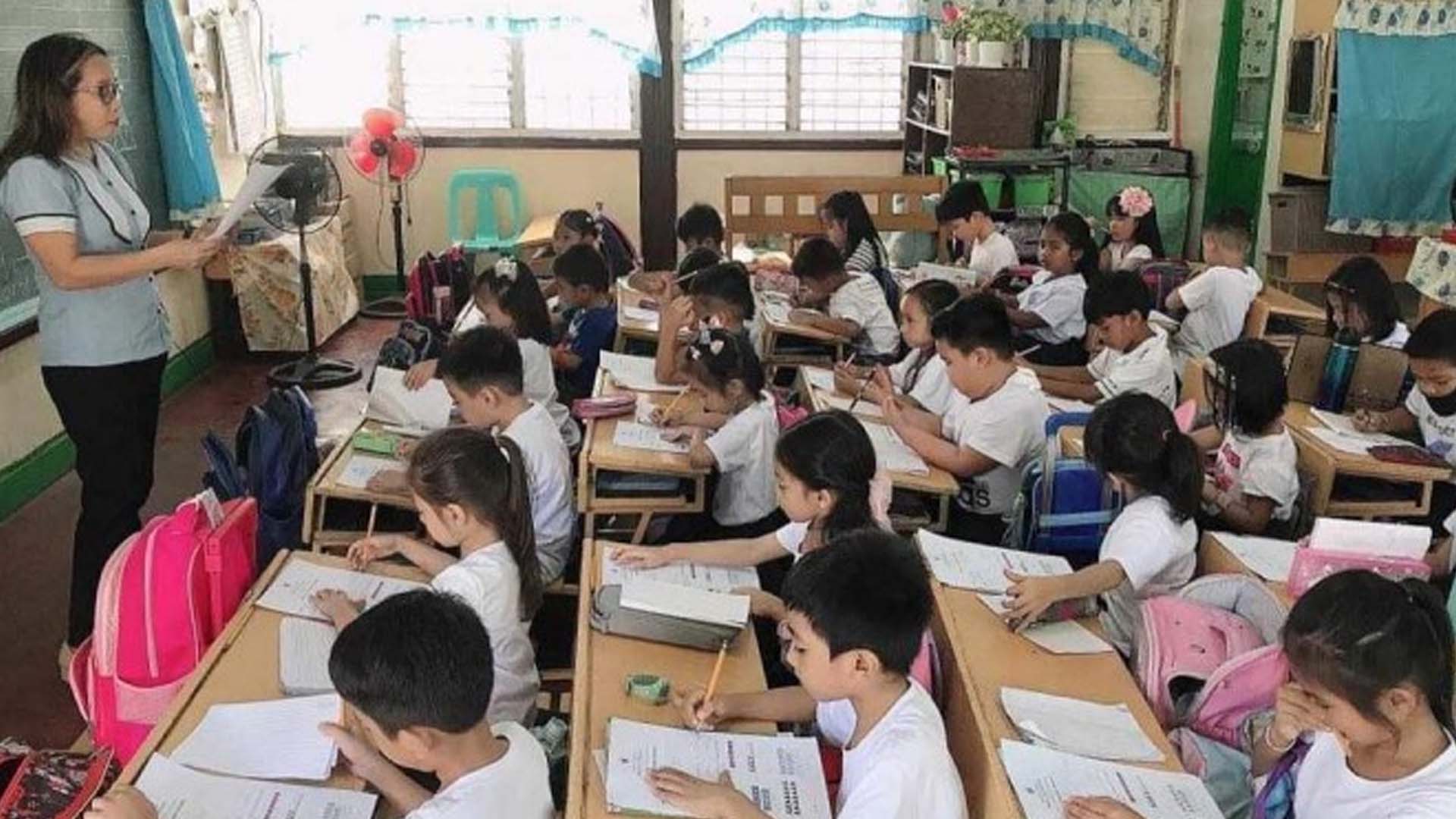Education Secretary Sonny Angara on Friday underscored the need for more investments in the country’s education sector.
Speaking at the World Bank Philippines Economic Update Development Dialogue, Angara stressed an urgent need for increased investment in Early Childhood Care and Development (ECCD) to ensure a brighter future for Filipino children.
“We need to invest more in the early years of our people to ensure every Filipino child born today has the chance to dream, learn, grow, and contribute to our nation’s progress,” he said.
Angara said strong early investments in human capital are essential for a forward-looking society.
“We must not fall short of nurturing human capital at the onset,” he said, adding that local government units (LGUs) play a vital role in implementing effective ECCD programs.
Citing a January 2024 United Nations Children’s Fund (UNICEF) report, Angara pointed out that 78 percent of Filipino toddlers are not enrolled in early learning programs, while 90 percent of children in the Bangsamoro Autonomous Region in Muslim Mindanao lack access to early education programs.
To address these gaps, he pointed out that President R. Ferdinand Marcos Jr. has directed government agencies, including the Department of Education (DepEd), Department of Health (DOH), and Department of Social Welfare and Development (DSWD), to work together to provide comprehensive care for children.
For 2025, the ECCD Council received a 12 percent budget increase, with PHP277 million allocated for constructing more National Child Development Centers.
Additionally, the ECCD curriculum is being revamped to ensure a smooth transition to formal schooling for Filipino children.
Investment in education key to nat’l progress
Meanwhile, Senators Alan Peter Cayetano and Pia Cayetano called for increased investments in education, emphasizing its long-term impact on the nation’s development.
In a news release, Alan Peter warned that the Philippines risks falling further behind its regional neighbors if education funding continues to lag.
“Tingnan mo ang kalidad ng education ngayon, and ‘yan ang kalidad ng bansa (Look at the quality of education right now, and that will be the quality of the country) 10, 15, 20 years from now,” he said, highlighting Vietnam’s rapid educational and economic progress as a benchmark.
Despite Filipino students and teachers excelling in international competitions, Cayetano noted the lack of overall financial support for the education sector.
He urged stronger partnerships between the government, private sector, and LGUs to address funding challenges and better support local universities and colleges.
He also called on the youth and the public to demand greater government prioritization of education.
“It’s a change in culture and thinking. Kung [ang] young people, they start demanding talaga (If the young people will really demand) – you give us less talk and put more money in education – it will happen,” he said.
Meanwhile, Pia said the PHP11.57 billion cut in DepEd, PHP26.91 billion in the Commission on Higher Education, and PHP641.38 million in the University of the Philippines in the 2025 General Appropriations Bill is unacceptable pointing out its impact on millions of Filipinos who are already struggling to access quality healthcare and education.
In a separate statement, she noted that the national budget, being a primary tool for development, should reflect the government’s priorities, which seem misaligned given these reductions, including the budget of the DOH, which was decreased by PHP25.80 billion.
“Health and education must always be our top priority if we are to build a stronger, more sustainable future for all. We must never compromise on our commitment to always put quality healthcare and education first for every Filipino,” she said.
“These reductions are a terrible step backward,” she added, emphasizing the long-term consequences of deprioritizing health and education, which she considers fundamental to building a better future for generations to come.
She vowed to continue advocating for the protection and enhancement of resources for these vital sectors, reiterating that they are the foundation of a sustainable and equitable society. (PNA)








